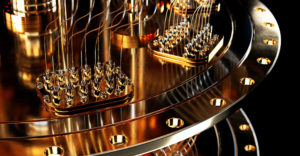
Marla Cilley, aka the FlyLady, knows a thing or two about housecleaning. One of those things is that it’s hard to get motivated to do it. To address this problem, she created an empire around inspiring others to step up their housecleaning game.
“We do behavior modification through email, Facebook and Twitter, and that behavior modification helps our members establish simple habits and string them into a routine,” Cilley told TechNewsWorld.
Every month, FlyLady focuses on a particular task. January, for instance, is all about making a shiny, sparkly, spic-and-span kitchen sink, February is about decluttering, and so on. Members get information and inspiration via email, social media, YouTube videos and online radio programs, with the emphasis on establishing, re-establishing, and maintaining good housekeeping habits.
It’s one way that technology is changing housework — simply by opening up channels of communication and information for people who need a little help. And though it’s a far cry from a technological, futuristic dream of a self-cleaning house, Cilley argues that it’s almost as good.
“With routines in place, your home practically cleans itself,” said Cilley. “You’re on automatic pilot.”
Robot Helpers
The next best thing to a self-cleaning house, however, might well be a self-propelling housecleaner, and that’s exactly what companies like iRobot and Neato have created with their robotic cleaners.

Since 2002, iRobot’s Roomba has revolutionized the automatic cleaning industry. The little device goes room to room, vacuuming continually on its own. It has evolved over time, becoming more powerful and precise, and the company has created a suite of other products that automatically mop floors, scour pools and clean gutters.
iRobots use an actively intuitive robotic technology that monitors sensory input and responds in real time with dozens of behaviors to ensure effective cleaning, with the goal being to automate some of the most repetitive housecleaning tasks.
“By using home cleaning robots, you will get peace of mind by not having to spend time doing chores that you didn’t want to,” said Laura Jakosky, public relations manager for home robots with iRobot.
“Furthermore, because you don’t have to actually do the cleaning, the robots can do the task more frequently and thus help you to keep a cleaner house overall,” she told TechNewsWorld.
Another robotic vacuum cleaner from Neato Robotics uses laser vision to scan the room and create an intelligent, efficient cleaning path. Users can set it up for an automatic cleaning schedule to make sure that floors are cleaned regularly, and when the robot is done, it returns to its base to recharge itself.
“All Neato Robotics’ vacuum cleaners are designed to automatically and intelligently clean your home on a daily basis,” said Nancy Nunziati, Neato Robotics’ director of corporate marketing.
“They’re as thorough as you’d be if you had the time,” she told TechNewsWorld, and they “feature the most powerful suction of any automatic vacuum cleaner.”
Clearing the Air

Various housecleaning technologies also focus on cleaning and purifying the air in a home. Purely Products, for instance, incorporates negative ionization into CFL bulbs, nightlights and air purifiers to allow consumers to effortlessly clean the air.
“It’s literally pulverizing all these airborne pathogens and germs and rendering them inert and cleaning the air,” Myron Mullins, president of Purely Products, told TechNewsWorld. “It’s cleaning the environment and having a positive impact on your body at same time. The whole concept of Purely Products is to take technology that has existed for a long time and put it in household goods that we use every day.”
The company also markets products that use ultraviolet light to kill germs, including a handheld pocket purifier that can be run over cutting boards, cellphones, or doorknobs.
“It’s a great way to sterilize items,” said Mullins. “A lot of surface cleaners kill the germs, but not the DNA. Germicidal UV kills the germs and the DNA of those germs. We’re bringing to market the most effective technologies for cleaning, and we’re doing it in a way that is inexpensive, doesn’t insert chemicals into the environment, and is a part of things we do in everyday life.”

Other air purifiers, such as those manufactured by IQAir, rely on ultrafine filtering rather than ionization or ultraviolet light.
“Our HyperHEPA filtration system is based on nanofiber mechanical air filtration technology,” Glory Dolphin, CEO of IQAir North America, told TechNewsWorld. “Compared to traditional HEPA filters, IQAir’s HyperHEPA filters have much more effective surface area and less air resistance, so they are far superior to any other design. IQAir’s designers also employ multiple sealing technologies to prevent any air from escaping through the air purifier without being cleaned. That’s why IQAir air purifiers are so much more effective than any others.”
The filtration process in IQAir’s purifiers cuts down on mold spores, pet dander, dust, and other pollutants that can run rampant in a home.
“High-performance air purifiers provide protection against air pollution of all types,” explained Dolphin. “Even in a world free of man-made air pollution, natural pollutants such as pollen, mold spores, dust mites and other airborne contaminants would still be a major issue for anyone with allergies, asthma or chemical sensitivities.
“Air purifiers often make the difference that allows a family to keep a loved pet,” Dolphine noted. “High-performance air purifiers also remove viruses and bacteria from the air, so they can be an important part of a healthy home for anyone with a compromised immune system.”
Forever Low-Tech?
Despite all these technological advances, many aspects of housecleaning are likely to continue to involve relatively low-tech scrubbing, dusting and organizing, observed Bob Scavo, senior director of operations with cleaning company Molly Maid — that’s just the nature of cleaning.
“There really isn’t a heck of a lot of technology needed to clean a house,” Scavo told TechNewsWorld. “Cleaning is so basic. There are no automatic cleaners out there — it just takes well-trained employees, cleaning supplies and cleaning materials.”
One of the things keeping housecleaning in the low-tech realm is the fact that no two homes are exactly alike.
“There are too many variables in a house,” said Scavo. “There are so many different variations to a house that there’s nothing cookie-cutter to it.”





















































